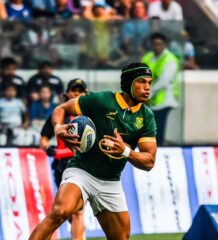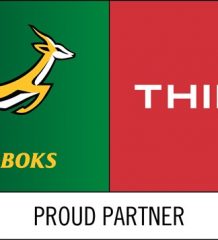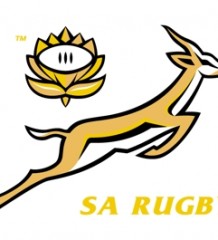SARU comments on Manufacturing of rugby supporter wear
A significant percentage of SARU supporter wear is sourced from local manufacturers the South African Rugby Union said on Tuesday. SARU has gone to great lengths to ensure that supporters are provided with a range of supporters wear which is affordable and accessible to all South Africans.
SARU has an obligation to provide a wide range of product to our supporters, from the top end of the market to the low end of the consumer spectrum. SARU is not a clothing manufacturer and our licencing agent, Signet Licensing, have therefore contracted various suppliers to manufacture and supply the market with supporter wear apparel.
SARU has through its integrated licensing programme for the first time this year developed a wide product range that satisfies all spectrums of the consumer market to ensure that the product is competitive from a price perspective as well as quality. The distribution channels have been extended to include retailers such as Sportsman’s Warehouse, Edgars, Woolworths, Total Sports, Sneakers, Ackerman’s , Pick n Pay, Game and Jet as well as smaller independent stores throughout South Africa to ensure that we make product accessible to as much of the market as possible.
The majority of these products are produced in South Africa and we are firmly committed to increase the local manufacturing component of such products in the future.
It is important to note that since last year, SARU has been in constant engagement with the South African Textile Workers Union (SACTWU) on the issue of our product and manufacturing plans for this important year, including SARU’s local procurement strategy post 2011. SACTWU have not expressed any concerns to date regarding SARU’s proposal and appear to have been satisfied as to the rationale provided in the split between the local and imported product in our market.
Our approach on this matter has always been open and transparent, as is evident in our discussions with the textile industry, and we will continue to do so in the future.
Related Posts
« EP Kings team announced that's heading to Welkom Toyota Free State Cheetahs team announced to play Vodacom Blue Bulls on Sat 10 September 2011 »
















